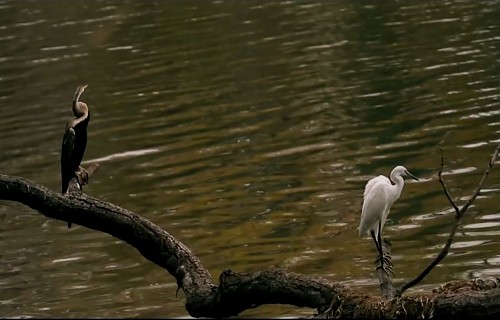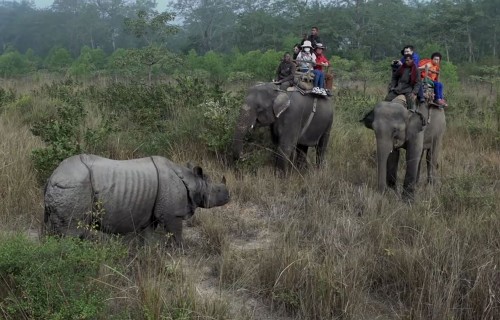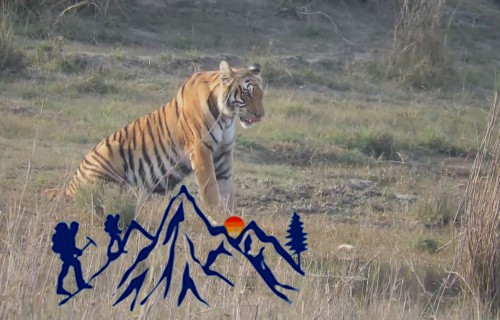Trip Review
No Review Yet
Duration: 2-3 days
Best Time: Autumn, winter, and early summer when the weather is warm and dry
Bardia National Park was originally a royal hunting ground in the late 1960s. Due to the availability of rich biodiversity within the pristine Babai valley, royals used to enjoy the hunting experience here in Bardia. The area gained the official status of a full-fledged national park in 1988. The objective behind nominating it as a national park was to preserve the endangered species, especially the tiger and its natural prey species within the valley. It got publicized in the 1990s and gained a tourist attraction. Still, the number of footfalls in the park is minimal compared to other National parks. Visitors can feel closer to nature, away from the hustle-and-bustle of the luxury hotel range, restaurants, and traffics.
Bardiya National park is the largest national park situated on Nepal’s western side of Terai in the Bardiya district. Karnali river lies in the west, the Churia range in the north, and the Babai river flows through it. Currently, it got extended to an area of 968 sq. km. Over 1400 households got relocated from the vicinity to provide a congenial ecosystem for biodiversity to flourish within a park. 507km area surrounding the periphery of a national park is declared a buffer zone. As a part of the buffer zone management program, locals are encouraged to adopt eco-friendly land-use practices.
Flora and Fauna
Precious species of vegetation cover the entire area. Almost 70% of the park consists of wooded grassland, savannah, and riverine forest. According to a study, the park comprises 839 species of flora, of which 173 are vascular plants (Dicots: 140, Monocots: 26, Fern: 6, and 1 gymnosperm species).
The undisturbed ecosystem in the park is home to an enumerable number of exotic species of mammals, reptiles, and birds. As per the record, around 642 faunal species, 30 mammals species, more than 250 species of birds, and several species of snakes, and lizards dwell in the park. The park is renowned for seizing glimpses of the Royal Bengal Tiger and the greater one-horned rhinoceros of Nepal. Initially, a few rhinoceros were translocated from Chitwan but reintroduced to this valley. Due to strict security measures, the number of rhinos is increasing in the valley. The other endangered animals around the park are wild elephants, swamp deer, and blackbuck. One can also locate rare gharial crocodiles and marsh muggers along the banks of Karnali river inside the national park. The river is also home to the exotic Gangetic dolphin often seen on the river surface. The Karnali and Babai rivers offer an excellent opportunity for sport fishing. The large masher, a game fish, is a fantastic catch. The dense riverine forests along river shores create the prime habitat for birds such as herons, egrets, black-necked stork, and little pratincole, the endangered birds such as Bengal florican, lesser florican, and Sarus Crane.
Climate
The best time to visit the park is during three distinct seasons, early summer, autumn, and winter. From October through early April, the days are warm, and nights are cool and pleasant, making it a perfect season to enjoy the wilderness.
Facilities
The park provides ample opportunities to soak in nature by performing activities like elephant rides, jeep safari, rafting, sport fishing, and bird watching accompanied by a naturalist. You can meet the Rana Tharu and Dangora people of southern Nepal and observe their colourful culture. For accommodation, you can find more than a dozen safari lodges in the surrounding areas of the park providing excellent hospitality services. There is a community health post at Thakurdwara near the park headquarter.
How to get there
The national park can also be reached by road, passing through Nepalgunj from where the park is only two hours drive away. For convenience, you can take a flight from Kathmandu to Nepalgunj.
Highlights of Bardia National Park Wildlife and Jungle Tour
No Review Yet
Leave Your Review
Your email address will not be published

The Koshi Tappu Wildlife Reserve is a protected area in the eastern Terai of Nepal that covers an area of 348 sq. km. It is the only wildlife reser...

Chitwan National Park (CNP), established in 1973, is the first National Park in Nepal. It lies in the Southern Central Terai of Nepal, covers an ar...

Bardia National Park was originally a royal hunting ground in the late 1960s. Due to the availability of rich biodiversity within the pristine Baba...